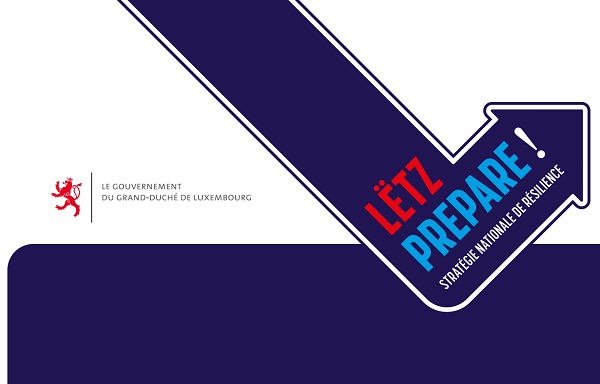
On Monday 13 October 2025, Luxembourg's Prime Minister, Luc Frieden, accompanied by the High Commissioner for National Protection, Guy Bley, presented the National Resilience Strategy (Stratégie nationale de résilience - SNR).
As reported by Luxembourg's Ministry of State and the High Commission for National Protection (HCPN), this ambitious strategic framework is aimed at strengthening the country's capacity to anticipate, absorb and overcome major disruptions and to build a more robust and cohesive society.
Coordinated by the HCPN, this government-wide effort is based on an integrated, all-risk, pan-societal and pan-governmental approach, in line with the guidelines of the European Union (EU) and NATO.
"A prepared society is a resilient society. This strategy is our collective response to the challenges of tomorrow," Prime Minister Frieden emphasised.
The key objectives of the strategy are to:
- ensure the continuity of vital state and societal functions;
- strengthen civil-military cooperation and public-private partnerships;
- protect critical infrastructure and essential services;
- develop cyber resilience and civil defence;
- promote a culture of preparedness at all levels of society.
The strategy is said to reflect the mutual interdependence of civil and military preparedness and is based on eight pillars that form the basis of the concept of national resilience:
- Defence of democracy, the rule of law and government
- A resilient society
- Essential goods and services and critical infrastructure and entities
- A resilient economy
- Integrated management of strategic and logistical resources
- Cyber resilience
- Civil defence
- Protection and defence of the national territory and that of allies
The SNR sets out almost 150 specific actions to be implemented at the national level. Some of these are already being carried out by the relevant institutions and public authorities or are in the process of being implemented. Examples include strengthening the LU-Alert information and warning system and communication infrastructures, establishing the National Procurement and Logistics Centre (CNAL) and deploying the RESC-LU national reserve for emergency response.
According to the authorities, the strategy aims to bring together and coordinate all sectoral policies that contribute to Luxembourg's resilience, ensuring consistency at both national and international levels. It also seeks to raise awareness and mobilise society as a whole in areas where Luxembourg needs to strengthen its preparedness for potential crises, disasters and conflicts.
The SNR emphasises the importance of solidarity and individual responsibility. The authorities added that it will strengthen the capacity of each citizen - and of society as a whole - to cope with crises. As such, Luxembourg has adopted the slogan: "Zesumme, fir eng staark a resilient Gesellschaft! (Together for a strong and resilient society) - Lëtz prepare!"
Further information on this 44-page document is available at www.letzprepare.lu.








